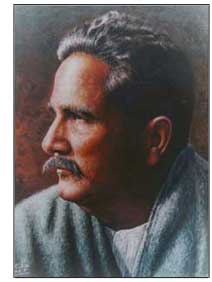wala max
Tuesday, March 12, 2013
Big Lake
Big Lake





Big Lake

Big Lake

Big Lake

Big Lake
Big Lake

Big Lake
Sunday, March 10, 2013
Munshi Premchand
Munshi Premchand
Source(google.com)
Munshi Premchand (July 31, 1880– October 8, 1936) was a famous writer of modern Hindi-Urdu literature. He is generally recognized in India as the foremost Hindi-Urdu writer of the early twentieth century.
The main characteristic of Premchand's writings is his interesting story-telling and use of simple language. His novels describe the problems of the rural peasant classes. He avoided the use of highly Sanskritized Hindi (as was the common practice among Hindi writers), but rather he used the dialect of the common people.
Below you can find a list of the Urdu short stories written by Munshi Premchand. You can read them by clicking on the titles of the stories.
Gilli Danda
Kusun
Coffin
Lottery
Shikwa Shikayat
Hajj-e-Akbar
Eid Gah
Borhi Kaki
Bad Naseeb Maan
Malikin
Masoom Baccha
Nayi Biwi
Roshni
Shanti
Eid Gah
Borhi Kaki
Bad Naseeb Maan
Malikin
Masoom Baccha
Nayi Biwi
Roshni
Shanti
Munshi Premchand

Munshi Premchand

Munshi Premchand

Munshi Premchand

Munshi Premchand

Munshi Premchand

Munshi Premchand
Sir Dr. Muhammad Iqbal
Sir Dr. Muhammad Iqbal
Sir Dr. Muhammad Iqbal (علامہ محمد اقبال / Allama Muḥammad Iqbāl; November 9, 1877 - April 21, 1938), commonly referred to as Allama Iqbāl (علامہ اقبال, ʿAllāma meaning "The Learned One"), was a Lahori Muslim poet, philosopher and politician in British India. He wrote his works in Persian and Urdu.
His poetry is very popular among Urdu and Persian readers and even translations of his poetry are available in many other languages like Arabic English etc. In Arabic world his poetry is appreciated in high level.
Iqbal and his Poetry
Among his beautiful and popular poetry, some of his poems got a tremendous fame across the globe and these are considered to be the best pieces of Urdu Poetry. Shikwa Jawab-e-Shikwa and Iblees Ki Majlis-e-Shua can be included in these pieces.
Here I am posting Iblees Ki Majlis-e-Shura and I am sure you will like it and think over the concepts lying in this poem. Perhaps we could find the basic reason of our backwardness and weakness and then will try to overcome.
Sir Dr. Muhammad Iqbal
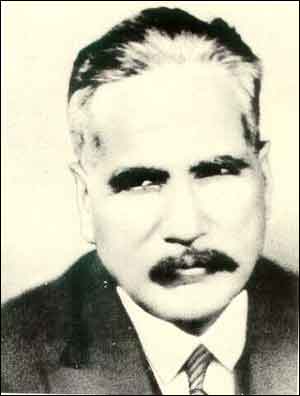
Sir Dr. Muhammad Iqbal
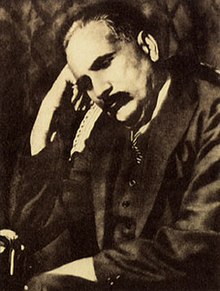
Sir Dr. Muhammad Iqbal

Sir Dr. Muhammad Iqbal
Sir Dr. Muhammad Iqbal

Sir Dr. Muhammad Iqbal

Sir Dr. Muhammad Iqbal

Sir Dr. Muhammad Iqbal

Sir Dr. Muhammad Iqbal

Sir Dr. Muhammad Iqbal
Mustafa Rahi
Mustafa Rahi
Source (google.com)
Mustafa Rahi, (1931-1986) was a poet of classical and neo classical Urdu Ghazal from Pakistan. He remained out of the lime light all his life. A selection of his works was published in 1993 by Murtaza Birlas.
Mustafa Rahi edited and compiled several books related to his mentor - Jigar Moradabadi.
His style comprises strong emotional expressions, with a whole hearted commitment to the elegance of ghazal. His style of poetry has earned recognition from his peers.
He has authored and compiled many books but all of his work could not be published.
His published works are:
• Ehed Aafreen: Ghazal.
• Jigar Namay: Letters of Jigar.
• Bayad-e-Jigar: A compilation of remarks about Jigar.
• Baqol-e-Jigar: Quotations from Jigar
• Jigar Hamaree Nazr Main: Critical reviews about Jigar.
• Namay Jo Mere Naam Aye: Compilation of letters to Nazir Siddiqui.
Mustafa Rahi
Mustafa Rahi
Wednesday, February 20, 2013
Mirza Ghalib
Mirza Ghalib
Ghalib (Urdu: غالب; Hindi: ग़ालिब) born Mirza Asadullah Baig Khan (Urdu/Persian: مرزا اسد اللہ بیگ خان), on 27 December 1797 – died 15 February 1869),[1] was a classical Urduand Persian poet from the Mughal Empire during British colonial rule. He used his pen-names of Ghalib (Urdu/Persian: غالب, ġhālib means "dominant") and Asad (Urdu/Persian:اسد, Asad means "lion"). His honorific was Dabir-ul-Mulk, Najm-ud-Daula. During his lifetime the Mughals were eclipsed and displaced by the British and finally deposed following the defeat of the Indian rebellion of 1857, events that he wrote of.[2] Most notably, he wrote several ghazals during his life, which have since been interpreted and sung in many different ways by different people. Ghalib, the last great poet of the Mughal Era, is considered to be one of the most popular and influential poets of the Urdu language. Ghalib today remains popular not only in India and Pakistan but also amongst diaspora communities around the world.
Mirza Ghalib
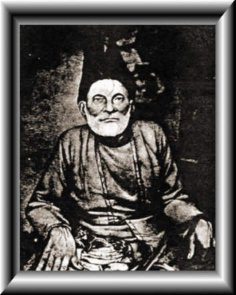
Mirza Ghalib

Mirza Ghalib

Mirza Ghalib
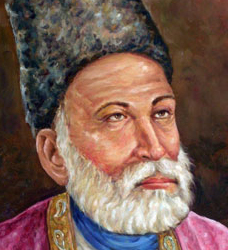
Mirza Ghalib

Mirza Ghalib

Mirza Ghalib

Mirza Ghalib
Subscribe to:
Posts (Atom)


